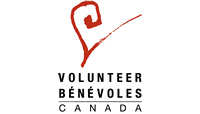Newcomers
Newcomers

Many newcomers to Canada are interested in volunteering. In addition to contributing to their new community, they may see it as a way to improve their language skills or gain work experience. Or they may wish to socialize and meet new people. To engage new Canadians, organizations must be welcoming and supportive. They should intentionally reach out to newcomers.
Benefits of engaging newcomers
Organizations can grow and become stronger when they apply what they learn about new cultures. At the same time, volunteers gain new skills and experiences. These things can help newcomers settle in to their new environment. And it gives them an opportunity to shape the community in which they live.
Newcomers in Canada
One in five Canadians is born outside of Canada.1 Immigration now accounts for close to 70% of our population growth.2 Each year, approximately 250,000 people come to Canada as refugees and landed immigrants. They settle in communities around the country, mostly in cities. The majority of newcomers go to Montreal, Toronto and Vancouver.
Immigrants volunteer at a rate of 38%. They volunteer an average of 162 hours per year. While this rate is lower than people born in Canada (45% of Canadians over 15 years old), immigrants tend to contribute more hours (152 hours per year from volunteers born in Canada).
Resources
- For organizations:
- Building Blocks for Engaging Newcomer Volunteers
- Volunteer Management Handbook - A Resource for Service-Providing Organizations Assisting Newcomers to Canada
Please note that the links in the handbook are not currently available.
- For newcomer volunteers: Building Blocks for Newcomers Volunteering: A Newcomer’s Guide to Volunteering
Other Resources
- Volunteerism and Civic Engagement Among New Canadians (Canadian Institute for Advanced Research in partnership with Manulife, 2014)
- Giving and Volunteering among Canada’s Immigrants (Statistics Canada, 2012)
- Beyond the Boomers: A Guidebook for Building an Immigrant Workforce in the Nonprofit Sector (Calgary Chamber of Voluntary Organizations, 2011)
- Building Bridges: A Guide for Making Volunteer Programs Accessible to Persons of Diverse Cultures with Various Levels of English Language Proficiency (Institute for Citizenship and Globalisation at Deakin University, 2009)
- Making Connections: Social and Civic Engagement among Canadian Immigrants (Canadian Council on Social Development, 2006)
- Untapped Resources: Opportunities for Volunteers with Limited English and French Language Skills – A Self Assessment Tool for Program Managers (Volunteer Ottawa, 1999)

